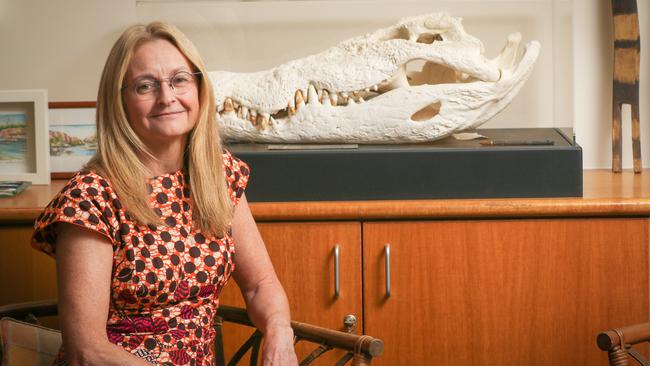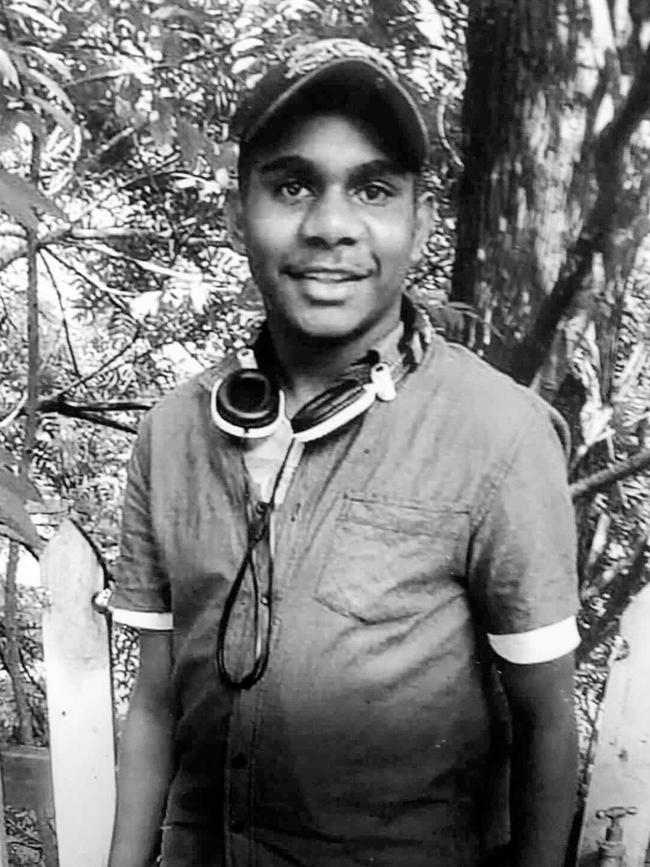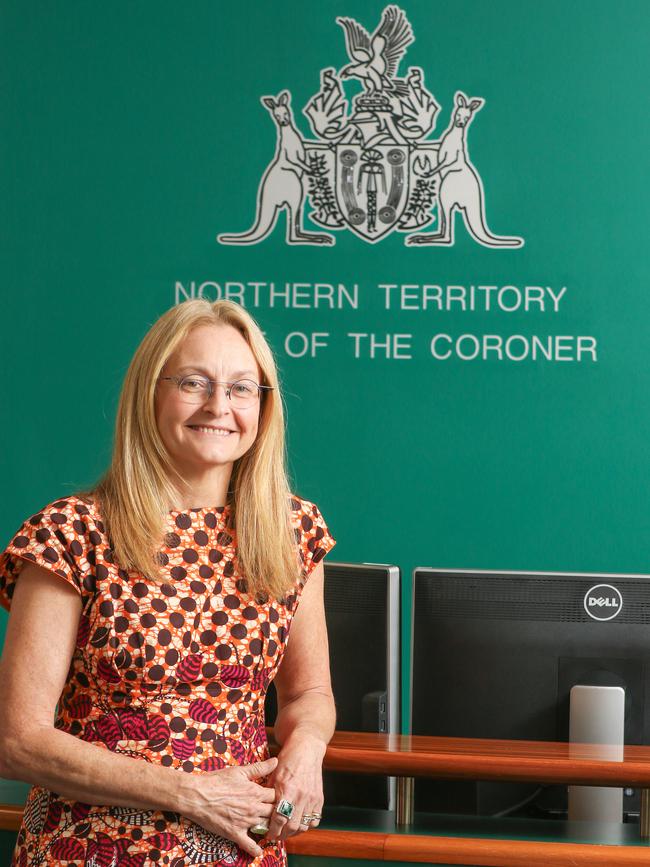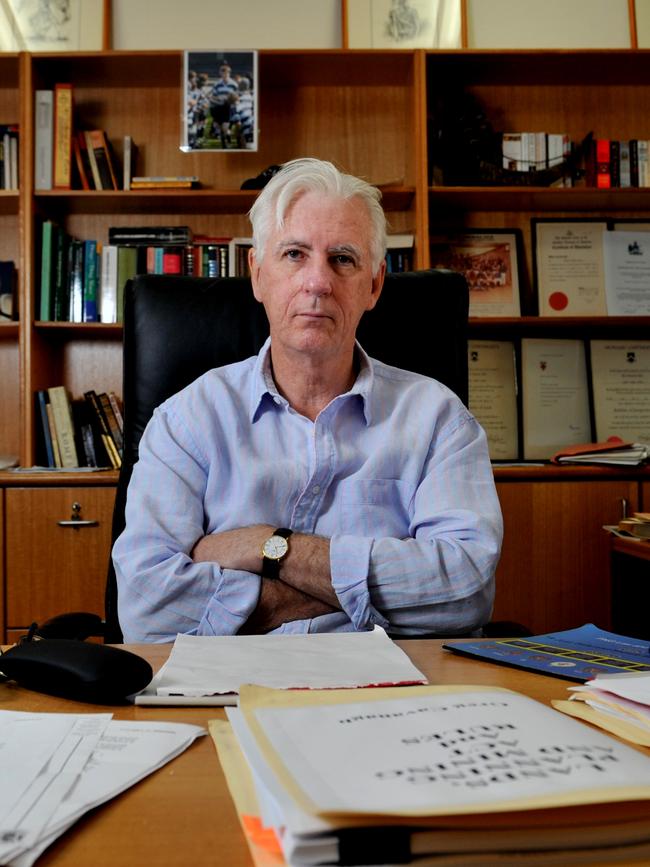WHEN an explosion ripped through a suspected illegal Indonesian fishing boat detained by Australian authorities off Ashmore Reef in 2009, killing five of those on board, responsibility for investigating their deaths fell to Territory Coroner Greg Cavanagh.
Among counsel assisting Mr Cavanagh during the inquest early the following year was a senior Crown prosecutor on secondment to the Coroner’s court after moving to the Territory from NSW with her young family in 2002.
Given the issues involved, the inquest was the focus of national attention — the boat would come to be widely known as Suspected Illegal Entry Vessel (SIEV) 36 — and for Elisabeth Armitage, then in her mid-40s, the hearings marked a first-hand introduction to the Western legal system’s best efforts to help lay the dead to rest.
Mr Cavanagh would go on to probe countless untimely deaths in the years that followed, often after requesting Ms Armitage’s assistance from the bar table, before announcing his retirement earlier this year.
Due to her experience in the jurisdiction, it was Ms Armitage, now a Local Court judge, who stepped in as acting Coroner when Mr Cavanagh hung up his proverbial gavel, and she was subsequently officially named as his replacement last month.

In her first exclusive interview since the announcement, the now 57-year-old says the posting is another way to contribute to her chosen profession’s ideal of community service, via the centuries old process of Coronial inquiry.
“It obviously answers questions for the family, it obviously addresses what happened to an individual, but it’s much bigger than that because we’re talking about how we can do things better or differently in the future and it has that much bigger impact, I hope,” she says.
But despite those lofty ideals, the job has not all been smooth sailing, even so far, with the first inquest Ms Armitage presided over since her appointment having to be abandoned last week after government departments bungled their institutional responses.
The delay was branded “ridiculous” by counsel for the family of the deceased, John Lawrence SC, who railed against the lack of procedural rules that would have compelled the departments to file the documents on time.
And the message was not lost on Ms Armitage, who says she will make it a priority to consider introducing some of the practices and procedures from other states and territories where such delays are less well tolerated.
“I think up until now, because it’s such a small jurisdiction, a lot is achieved through direct communication and relationships, and that’s helpful and we want to have good working relationships, even though we might not agree on outcomes and things like that,” she says.
“(But) I think everyone around Australia is looking more closely at the practices and procedures of inquests and how they can better meet the needs of the community, and certainly, there are practices and procedures in other jurisdictions and one of the things we’ll be considering is whether or not it would be helpful to introduce some practices and procedures and guidelines in the NT as well.”
The false start may have actually been a blessing in disguise, helping to iron out any creases as Ms Armitage prepares for what is likely to be one of the most significant inquiries of her tenure when she probes the death of 19-year-old Warlpiri man Kumanjayi Walker in September.

The tiny outback town of Yuendumu will again be thrust into the national spotlight after Mr Walker’s fatal shooting by NT Police officer Zach Rolfe sparked protests throughout Australia in 2019.
After a lengthy Supreme Court trial that saw Constable Rolfe acquitted on all charges in March, Ms Armitage says the hearing, expected to last for three months, will be an opportunity to “look a lot more broadly around the circumstances” before and after the tragedy.
“Of course that’s why you can have relevant inquest proceedings following criminal proceedings because we’re not simply looking at the very close specifics of what happened on the day, which is part of it,” she says.
“But we’re also really looking at why that happened and the broader contributors to why that happened, to try and find out whether or not there is a better way of doing things.”
Along with her own lengthy criminal trial experience as a Crown prosecutor, Ms Armitage says it was her very first inquest, into the explosion aboard SIEV 36, that may have most prepared her for this next critical undertaking.
“Thankfully, I have been involved in, as my very first inquest, SIEV 36, which was another very significant inquest that was conducted in the Territory and obviously I’ve been involved in many trials,” she says.
“The key is close preparation and attention to detail and the close preparation is the allocation of really good resources as early as possible.”
The Coroner says a key part of that preparation has been the work done by her counsel assisting team — including top lawyers Peggy Dwyer, Patrick Coleridge and Maria Walz — who got started as soon as the Yuendumu inquest was announced.

She says as the clock ticks down to September, she has “faith in the process, faith in the team I’ve put together”, as well as faith in the numerous other interested parties and their legal teams, including Mr Walker’s family and community, NT Police and Const Rolfe himself, who will all have a seat at the table.
“I’m really confident that every single piece of evidence is going to be thoroughly scrutinised and that every inquiry is going to be made so that we can gather the best information available,” she says.
“(My team has) already extensively engaged with members of the community and community organisations, and have been visiting the community and will do so again, and they’re working very well with all the other parties.
“We might not all have the same idea about where we should go from here, but I am very confident that everyone at the bar table recognises that we are working towards a better outcome for the NT as a result of the process that we’re engaged in.”
But despite her optimism, Ms Armitage is under no illusions about being able to please everyone.
“For the community to understand the legal process is obviously difficult, for lay people to understand our legal processes is difficult, so their expectations and what we can actually deliver may not align,” she says.
”You can understand there would be fears about the process following a very difficult trial process and understanding their involvement as compared to what that was like in a trial.
“We’ve actually got an audio message which has been translated into Warlpiri which is provided to the (community) organisations and is going to be on our website to try and assist with that, so all of that, I’m hoping, will assist in aligning expectations with what the inquest can actually deliver.”
■ ■ ■
Greg Cavanagh had attained something of a cult status in the NT over the decades, offering trademark witticisms from the bench and a cheerful “Cheerio” to departing witnesses during his almost a quarter of a century in the role.
Looking ahead, Ms Armitage is well aware that her time as Territory Coroner will involve stepping into those sizeable brogues, and is quick to acknowledge the legacy of her predecessor.
“I definitely don’t think I can fill Greg Cavanagh’s shoes, I think he’s left a very big footprint on the coronial jurisdiction and I think the coronial jurisdiction has served the Territory very well,” she says.
“Generally, change is incremental and I think if you look back over his legacy there is a significant amount of incremental change, which has benefited the whole of the community.”
Ms Armitage cites changes in police and prison procedures and conditions as well as improvements to road safety as among the high points of Mr Cavanagh’s time in the chair.
But she says she has also already singled out the “massive challenge” of domestic violence as an area where she feels she can make her own mark.
“We’re going to be, along with the rest of the community and the rest of the agencies in the community, looking very closely at domestic and family violence and deaths from domestic violence and hopefully having the resources to look at that a bit more deeply,” she says.
“Spending some time on some of those inquests now and really getting some better information so some more significant contributions can be made in that area as well.
“I think we’ve had a really strong and solid service and a huge amount of respect for Mr Cavanagh, from his colleagues and from the community, in relation to what he’s achieved, I hope to build on it.”

Those achievements aside, Ms Armitage also acknowledges her predecessor’s frequently expressed frustration at being called upon to make the same recommendations over and over again as the years ticked by, only for them to seemingly fall on deaf ears.
“Cultural change is difficult to achieve and it’s difficult for changes to become embedded in systems, so people forget their learnings, it’s true,” she says.
“I’m always hopeful, otherwise I wouldn’t be here, that we can learn and we can change and we can do things better and I’m sure that we do do that.
“Our government institutions, our agencies that service the public, have a responsibility to embed and remember the changes and, hopefully, we won’t have to keep repeating recommendations that have previously been made, but we’re a human based system and people can forget.”
Ms Armitage says she won’t lose sight of the fact that “everyone is human and every human makes mistakes”.
“We’re not here to blame individuals for being human and making mistakes, we’re here to look at the systems that protect people from those mistakes so that mistakes can be made but there are systems in place to prevent those mistakes having significant consequences,” she says.
“So our focus is definitely on the systems and how we can make the systems strong and robust to support the people working in those systems and to produce good outcomes.”
■ ■ ■
Addressing Kumanjayi Walker’s family directly shortly after the inquest was announced following Zach Rolfe’s acquittal in March, then acting Coroner Elisabeth Armitage said she recognised that “your voices have not yet had an opportunity to be heard and understood”.
“The grief and shock from this young man’s traumatic death must be of the highest degree,” she said.
“I expect that your grief has been greatly compounded by feelings of anger, fear and confusion.”
What the inquest would not do, she said, was to “undo the past”.
“We will, however, provide you with the opportunity to express your distress, your fears and concerns, and your hopes for the future,” she said.
“We will endeavour to not simply hear you, but to understand you.”
The inquest into the death of Kumanjayi Walker in Yuendumu on November 9, 2019 is due to begin on September 5, first in the town itself, before reconvening in the Alice Springs Local Court.

Add your comment to this story
To join the conversation, please log in. Don't have an account? Register
Join the conversation, you are commenting as Logout
Gaps in Darwin maternity services highlighted through stories of loss
Darwin families are making plans to leave the NT as shocking testimonies reveal gaps in maternity care, with some mothers seeking help four times before tragedy struck.
Three Territorians, one lifesaving legacy as RLSS turns 60
From tea with the Queen to fighting for free swimming lessons, Daphne Read fought for six decades to stop NT kids from drowning while RLSS member Michael De Silva nearly did.